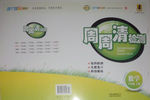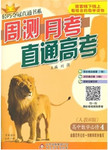题目内容
A new enemy is threatening Japanese traditions: leisure(闲暇). As part of its attempt to increase imports, the government is trying to get people to work less and spend more. The workers are disgusted.
The figures support the western prejudice(偏见) that the Japanese are all work and no play. Trying to force workers away from their desks and machines, the government said last April that the country should cut down from its 2,100 hours average work year to 1,899 hours and a five-day week by 1992. Beginning in February, banks and stock markets will be closed on Saturdays, staff of civil service will be forced out of their offices two Saturdays a month. The government hopes that others will follow that practice.
But some persuasion will be needed. Small companies are very angry about it and they fear competitors may not cut hours. The unions are no happier: they have even advertised in newspapers arguing their case against the foreign pressure that is forcing leisure upon them. They say that shorter hours are a disguised(隐性的) pay cut. The industrialists, who have no objection to the government’s plans, admit that shorter hours will help them cut costs. Younger Japanese who are supposed to be acting against their hard-working parents, show no sign of wanting time off, either. But unlike older workers, they do spend money in their spare time. Not content with watching television, they dance, dress up, sit in cafes, go to pop concerts and generally drive the leisure-industry boom. Now that they know how to consume, maybe the West can teach them to relax and enjoy themselves, too.
68.The purpose of getting the Japanese to have more spare time is that .
A.the government wants to show more concern for the health of the people
B.the government needs to get more goods from abroad
C.the Japanese have been working too hard
D.the Japanese hope to change the western prejudice
69.The group of people who welcome the shorter-hour system in Japan is .
A.the small companies B.the industrialists
C.the unions D.the younger generation
70.The unions think that .
A.the shorter hours they work, the higher pay the can get
B.the more they work, the less leisure they can enjoy
C.the shorter hours they work, the less pay they can have
D.the greater pressure the government is forcing on them, the less happy they can be
71.The best title for this passage can be .
A.Oh no! Not Saturday Again! B.Leisure: the Greatest Threat!
C.Enjoy While You are Young! D.Less Work and More Play!
【小题1】B
【小题2】B
【小题3】C
【小题4】D

 周周清检测系列答案
周周清检测系列答案 轻巧夺冠周测月考直通高考系列答案
轻巧夺冠周测月考直通高考系列答案
His first fight was for the equal rights of black people in South Africa. Then, as the first black president he fought to unite the country and organize the government. Now Nelson Mandela has set his sights on a new enemy, AIDS.
On March 19 the 82-year-old, former president, hosted his second AIDS-awareness concert. He warned that 25 million people in Africa were already infected with the fatal disease.
Mandela was born in a small village in South Africa in 1918. He was adopted (收养) by the chief of his tribe (部族) and could have been a chief himself and lived a happy country life.
But he refused to be a chief when his people lived under racial discrimination ( 种族歧视). He decided to fight for equal rights for all the people in South Africa. Before 1990, under the country’s Racial Segregation Law (种族隔离法), colored and white people lived separately. Black people were treated unfairly even when taking a bus. Blacks had to stand at the back of the bus to make room for white people even when there were only a few of them on board.
For his opposition (反对) to the system Mandela was arrested (被捕) and spent 27 years in prison. He was freed in 1990 and become the president of the country after the first elections were held in which everyone could vote.
Mandela was not only a political fighter who attacked with speeches. He was also a trained boxer (拳击手) and fought in the ring when he was young.
“ Although I did not enjoy the violence of boxing, I was interested in how one moved one’s body to protect oneself, how one used a strategy both to attack and retreat (撤退),” he wrote in his autobiography.
As a skilful fighter, he chose music as his weapon against AIDS. He hopes to win another victory against AIDS.
【小题1】Nelson Mandela succeeded in doing the following except _____.
| A.winning the equal rights for the black people in South Africa |
| B.uniting South Africa |
| C.organizing a government in South Africa |
| D.controlling the spread of AIDS |
| A.could easily have been the president of South Africa |
| B.could still have lived a happy life |
| C.could have been in a difficult situation |
| D.would have been an excellent boxer |
| A.continues to help the black people with the political struggle |
| B.is taking a position in a music group |
| C.is taking on the world’s greatest fight against AIDS |
| D.is preparing for the next election of president |
| A.Struggle is his life. | B.Sports make his fame. |
| C.Fight for equal rights. | D.Great fighter against government. |
His first successful fight was for the equal rights of black people in South Africa. Then, as the first black president, he fought to unite the country and organize the government. Now Nelson Mandela has set his sights on a new enemy, AIDS.
On March 19 the 82-year-old, former president, hosted his second AIDS-awareness concert. He warned that 25 million people in Africa were already infected with the fatal disease.
Mandela was born in a small village in South Africa in 1918. He was adopted by the chief of his tribe and could have been a chief himself and lived a happy country life.
But he refused to be a chief when his people lived under racial discrimination(歧视). He decided to fight for equal rights for all the people in South Africa. Before 1990, under the country’s Racial Segregation Law, colored and white people lived separately. Black people were treated unfairly even when taking a bus. Blacks had to stand at the back of the bus to make room for white people even when there were only a few of them on board.
For his opposition to the system, Mandela was arrested and spent 27 years in prison. He was freed in 1990 and became the president of the country after the first election were held in which everyone could vote.
Mandela was not only a political fighter who attacked with speeches. He was also a trained boxer and fought in the ring when he was young.
“Although I did not enjoy the violence of boxing, I was interested in how one moved one’s body to protect oneself, how one used a strategy both to attack and retreat”, he wrote in his autobiography.
As a skillful fighter, he chose music as his weapon against AIDS. He hopes to win another victory against AIDS.
【小题1】When was Mandela arrested?
| A.In 1963 | B.In 1990 |
| C.When he refused to be a chief | D.When he became the president |
| A.winning the equal rights for the black people in South Africa |
| B.Uniting South Africa |
| C.organizing a government in South Africa |
| D.controlling the spread of AIDS |
| A.could have been the president of South Africa |
| B.could still have lived a happy life |
| C.could have been in a difficult situation |
| D.would have been an excellent boxer |
| A.struggle is his life |
| B.sports make his fame |
| C.fight for equal rights |
| D.a great fighter against government. |
His first successful fight was for the equal rights of black people in South Africa. Then, as the first black president, he fought to unite the country and organize the government. Now Nelson Mandela has set his sights on a new enemy, AIDS.
On March 19 the 82-year-old, former president, hosted his second AIDS-awareness concert. He warned that 25 million people in Africa were already infected with the fatal disease.
Mandela was born in a small village in South Africa in 1918. He was adopted by the chief of his tribe and could have been a chief himself and lived a happy country life.
But he refused to be a chief when his people lived under racial discrimination(歧视). He decided to fight for equal rights for all the people in South Africa. Before 1990, under the country’s Racial Segregation Law, colored and white people lived separately. Black people were treated unfairly even when taking a bus. Blacks had to stand at the back of the bus to make room for white people even when there were only a few of them on board.
For his opposition to the system, Mandela was arrested and spent 27 years in prison. He was freed in 1990 and became the president of the country after the first election were held in which everyone could vote.
Mandela was not only a political fighter who attacked with speeches. He was also a trained boxer and fought in the ring when he was young.
“Although I did not enjoy the violence of boxing, I was interested in how one moved one’s body to protect oneself, how one used a strategy both to attack and retreat”, he wrote in his autobiography.
As a skillful fighter, he chose music as his weapon against AIDS. He hopes to win another victory against AIDS.
【小题1】When was Mandela arrested?
| A.In 1963 |
| B.In 1990 |
| C.When he refused to be a chief |
| D.When he became the president |
| A.winning the equal rights for the black people in South Africa |
| B.Uniting South Africa |
| C.organizing a government in South Africa |
| D.controlling the spread of AIDS |
| A.could have been the president of South Africa |
| B.could still have lived a happy life |
| C.could have been in a difficult situation |
| D.would have been an excellent boxer |
| A.struggle is his life |
| B.sports make his fame |
| C.fight for equal rights |
| D.a great fighter against government. |